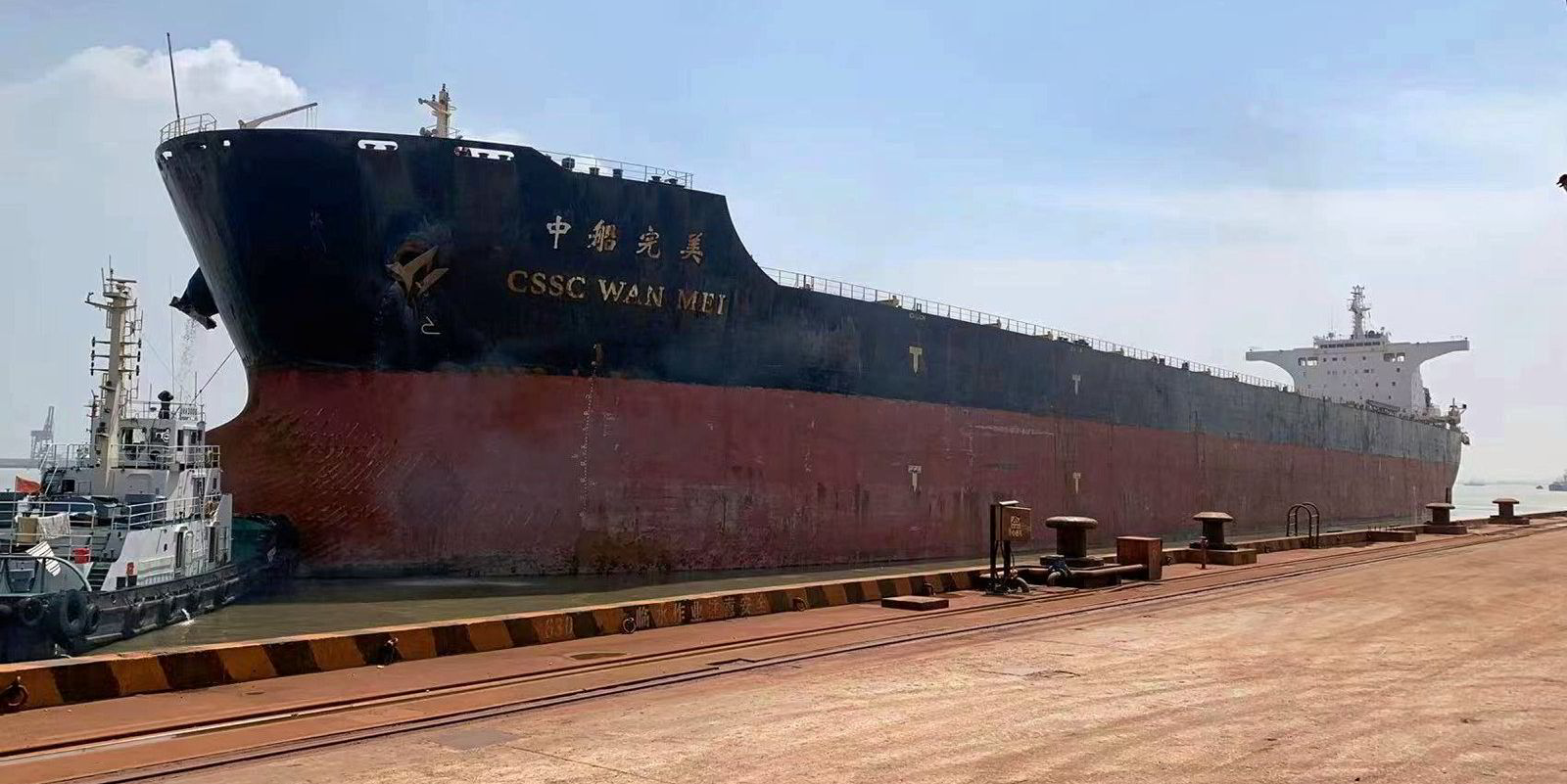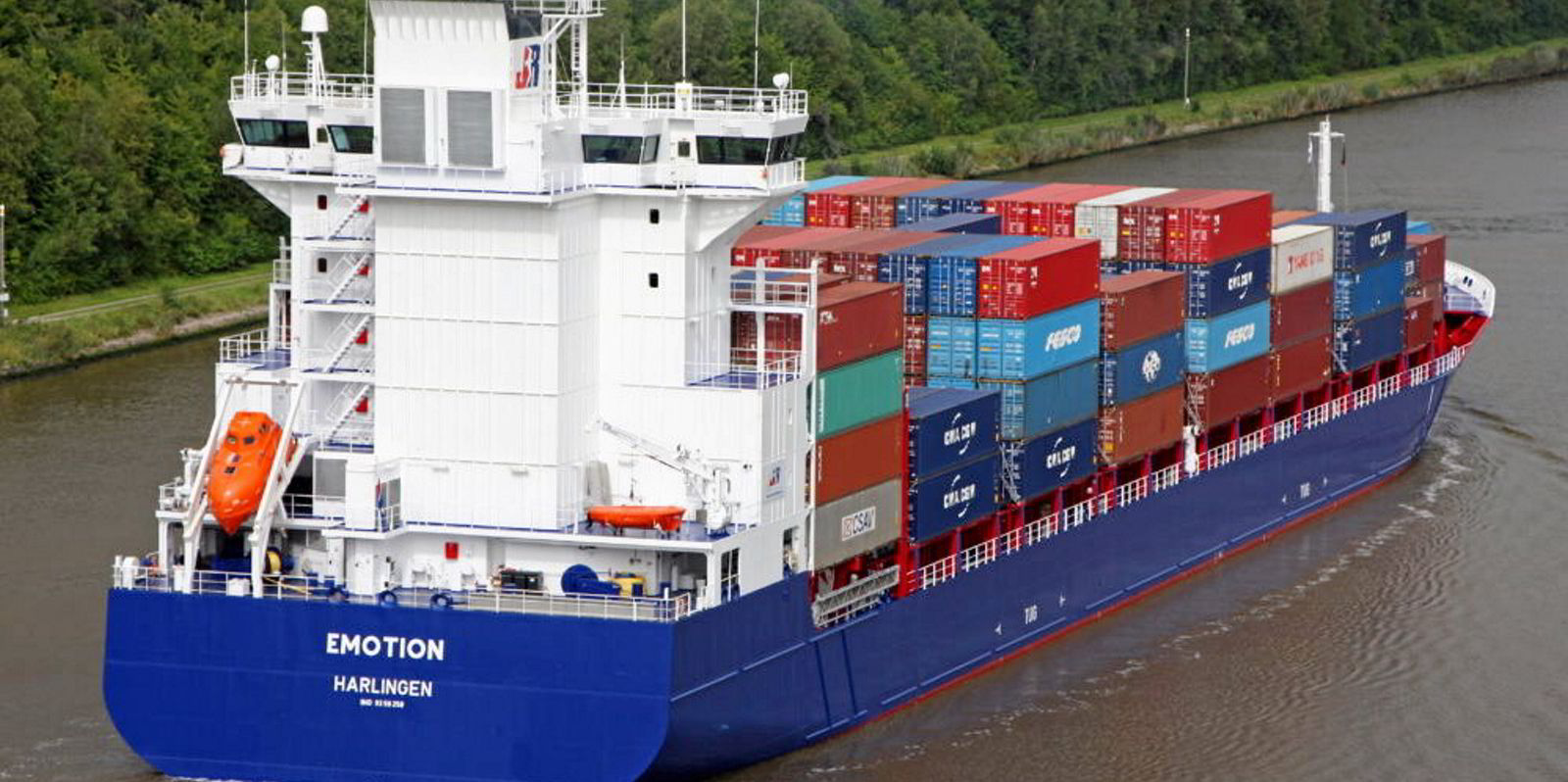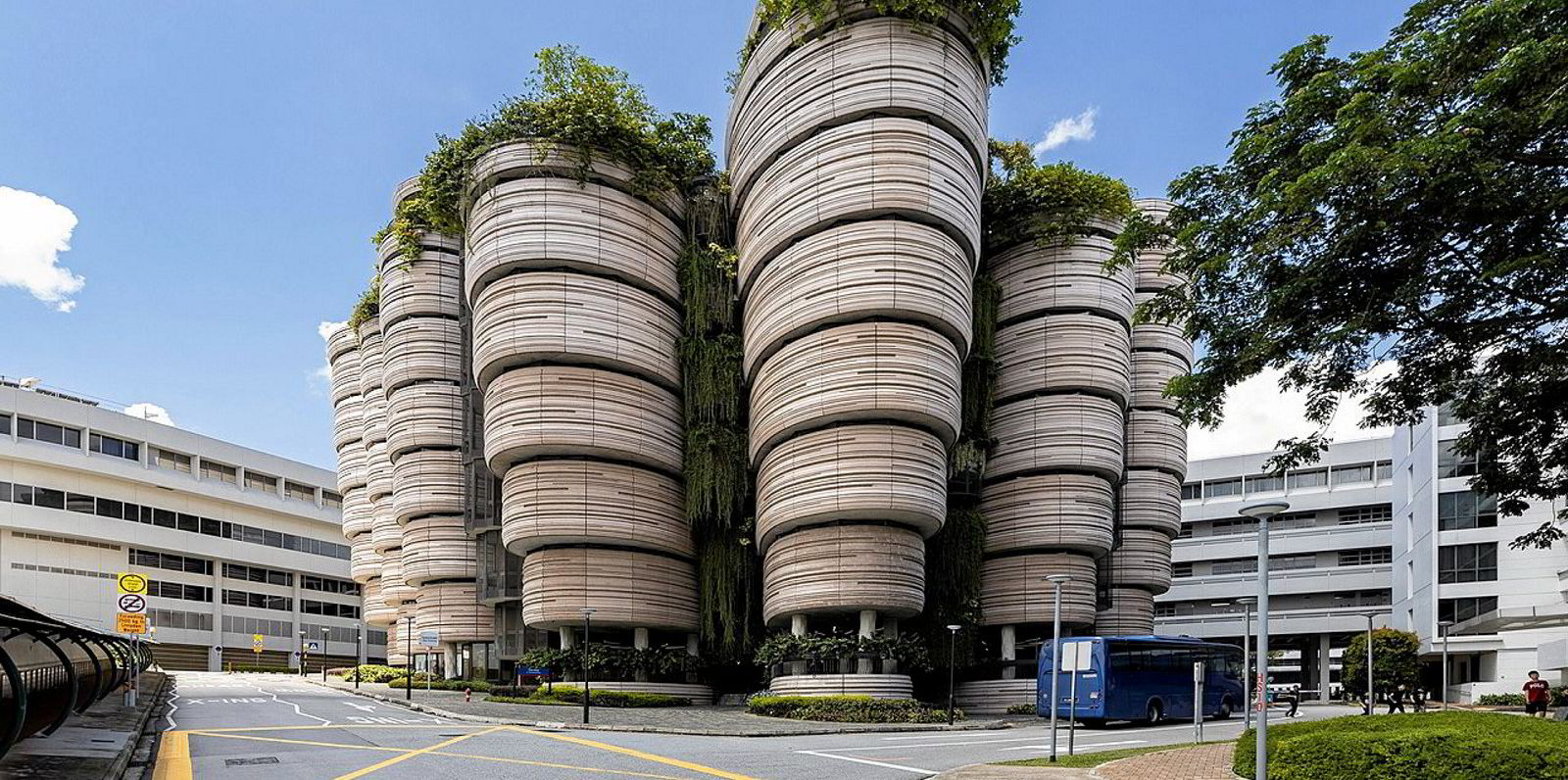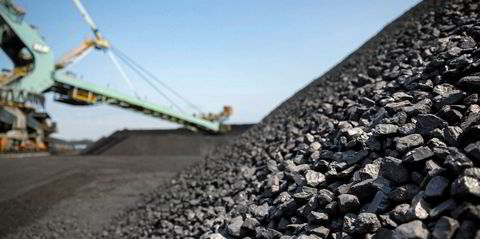Wah Kwong Maritime Transport Holdings has joined Bureau Veritas and Shanghai Qiyao Environmental Technology Co (Qiyao Environ Tec) to study the feasibility of installing carbon capture and storage (CCS) units on existing ships to meet 2030 Carbon Intensity Indicator targets.
The trio signed a cooperation agreement on the study, which will focus on two types of bulk carriers in the fleet of the Hong Kong shipowner.
Bureau Veritas said Qiyao Environ Tec, a subsidiary of Shanghai Marine Diesel Engine Research Institute, has developed a customised design of CCS units for the Wah Kwong fleet based on the vessels’ design parameters and submitted drawings.
The concept has completed laboratory testing, achieving a carbon capture rate of more than 85% to date.
Wah Kwong is joining a number of owners looking at onboard CCS, some of which are already moving ahead with installing systems.
Bureau Veritas said the system being examined consists of units that separately handle one of the following functions — absorption, separation, compression, refrigeration and storage.
The French classification society said the principle is that the organic amine compound solution reacts with the CO2 in the absorption unit, separating it from the rest of the exhaust gas.
The dissolved CO2 compound solution is desorbed at high temperature in the separation tower, before the extracted CO2 is compressed, purified and cooled into liquid CO2 and stored in a low-temperature tank.
The system, which can be designed for different ship types and sizes, is in the process of “continuous optimisation”, Bureau Veritas said.
Design approval of the CCS unit is now under review.
Bureau Veritas said it has reviewed the plans with existing regulations and rules to ensure the safety of the vessels and equipment, and believes the carbon emission reduction targets can be achieved during operation.
It said subsequent research work will be conducted for oil tankers. As a marine application, the challenges for CCS are safety, layout, energy consumption and the need to balance cost-effectiveness, Bureau Veritas added.
Alex Gregg-Smith, Bureau Veritas marine & offshore senior vice president & chief executive for northern Asia and China, said: “Carbon capture, utilisation and storage [CCUS] technology captured a total of 40m tonnes of CO2 in 2021, according to the International Energy Agency.
“This makes CCUS one of the options available today that could significantly contribute to achieve carbon neutrality, as well as a promising avenue for reducing emissions from shipping.”






